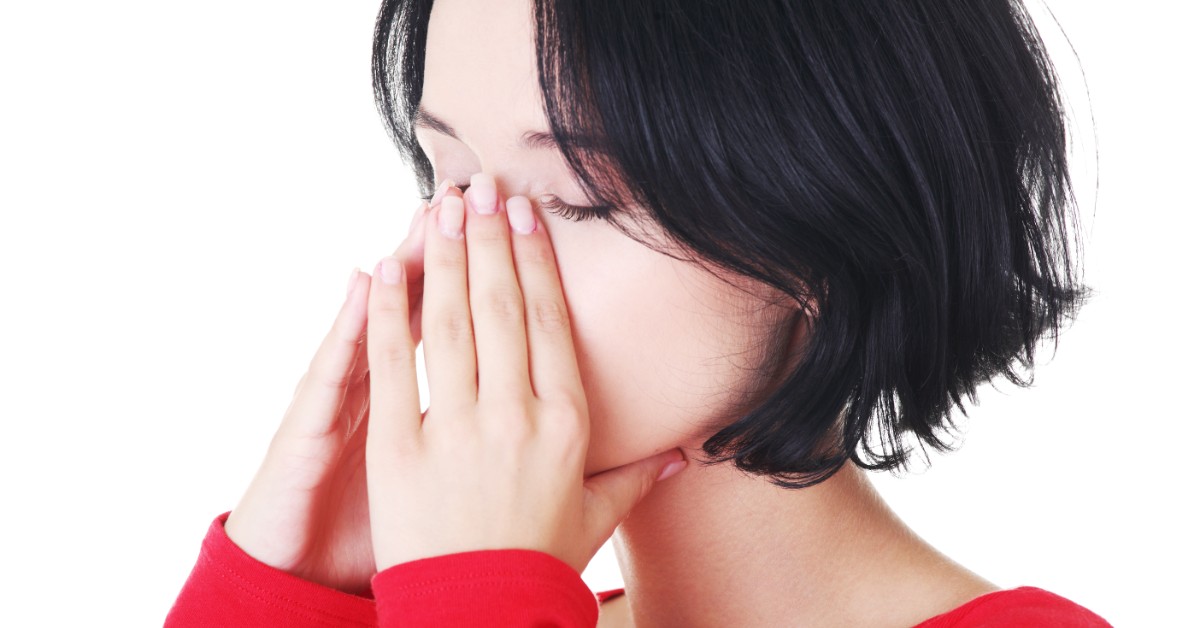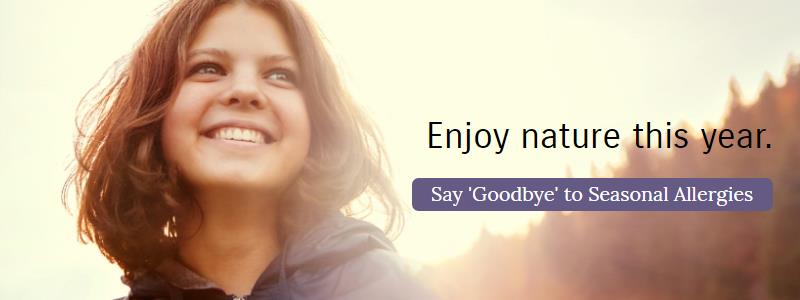Blog
Recent Posts
Your Monthly Guide to Seasonal Allergies Part 2
Posted on
In our last blog post, “Your Monthly Guide to Seasonal Allergies Part 1,” we discussed the seasonal allergies that are most commonly present from the months of January through June. We went month-by-month to provide you with a quick overview of which allergies are most prevalent during each month. In this blog, we will continue to dive into seasonal allergies for the months of July through December.
Seasonal allergies are often caused by trees, weeds, grasses, flowers, molds, and fungi. The timing of when these are blooming in your area may vary slightly from this guide due to different weather and environmental factors. However, this is a general timeline that should give you an idea of which seasonal allergies you may be suffering from by what time of year you experience them.
Read on to learn more about seasonal allergies, and if you find yourself sneezing, coughing, and suffering from itchy eyes and a runny nose, consider trying homeopathic Allergena. Our natural allergy-relief drops help your body to build up a healthy immune response to allergies that are caused by plants indigenous to your region. Find your zone and order Allergena today.
July
As the summer progresses, grass pollen begins to subside and your spring allergies may start to let up a bit. However, it is during July that fungus spores and mold can begin to grow. Mold commonly finds a place to grow in compost piles and piles of grass left after cutting. Allergies to fungus and mold will typically feel just like spring allergies and cause similar symptoms such as itchy, dry eyes, coughing, sneezing, and a runny nose.
If you experience allergies in July and think that they may be caused by mold or fungus, our Allergena Mold Mix is specially formulated to help your body combat allergies from molds and fungi. Try it today.
August
The humidity and heat that typically occurs during August leads to excessive growth of mold spores. August provides the perfect environment for mold to thrive. If you experience allergies to mold, August may be a good time for you to stay inside. Using HEPA filters on your air conditioning may help keep the air clean and allergen-free inside your home. However, if you want to get the most out of your summer and enjoy one of the last warm months of the year, Allergena Mold Mix can help. Try our homeopathic allergy relief drops, so that you can bask in the summer sun for a month longer.
September
September is the beginning of ragweed allergies for many areas. Ragweed pollen is lightweight and spreads easily. The wind can carry it for miles, so even if you don’t have any ragweed in your immediate area, you could still be suffering from an allergic reaction to the pollen from a ways away.
To keep fall allergies away, try homeopathic Allergena allergy-relief drops. Each formula is created to combat the particular allergens in your area, including the types of ragweed that commonly grow in your geographical zone. Find your zone today and order Allergena to fight fall ragweed allergies.
October
In the northern United States, fall allergies will begin to subside during the month of October. However, if you live in the South where the weather is still warm and sunny during the fall months, mold and fungus will still be present, especially if it has been rainy and windy.
If you live in one of the southern states that tends to experience warmer weather and some seasonal showers in the fall, you should consider Allergena Zone 2. This formula includes homeopathic allergy-relief for 11 different southern states including Florida, Louisiana, and Georgia.
November
You may continue to experience some allergies to mold, fungus, and ragweed during the beginning of November. However, by the middle of the month, fall allergies have usually subsided. The later part of November is one of the few times of year that seasonal allergies begin to dissipate as a whole. But, the more we remain indoors due to the weather, the more likely indoor allergies to house dust and pet dander will begin to surface. Typically someone with seasonal allergies can relax and enjoy the month of November without worrying about the sneezing, coughing, and runny nose.
If you find yourself suffering from allergies to pet dander, Allergena has a solution for that too! Our Allergena Pet Dander formula is specially designed to help your immune system build up a healthy response to pet dander from cats, dogs, and other pets.
December
While you may begin to experience allergies from house dust or pet dander as you remain in the warmth of your home during December, one of the more common allergic reactions to experience at this time is actually to mold spores. This is due to the mold that can live in pine trees. When we bring in live pine trees to celebrate the Christmas season, we may be bringing mold spores into our homes as well. Try Allergena’s Mold Mix to combat mold allergies so that you can enjoy your freshly cut Christmas tree throughout the holiday season.
Naturally Combat Seasonal Allergies With Allergena
After reading through our monthly guide to seasonal allergies, we hope you have a better understanding of what could be causing your sneezing, runny nose, and itchy eyes. This year, instead of suffering through your allergies with drug store medicines that make you sleepy, light-headed, and dry you out, try homeopathic Allergena. Our allergy-relief drops are all-natural and work with your body to build up a healthy immune response to the trees, weeds, and grasses that grow in your area. Find your zone and finally experience real relief from seasonal allergies with Allergena.
If you enjoyed reading this blog and found it helpful, take the time to read, “Your Monthly Guide to Seasonal Allergies Part 1,” where we discuss common allergies that surface from January through June. Understanding what is causing your seasonal allergies can help you choose the right Allergena formula for you. Shop Allergena today.

Your Monthly Guide to Seasonal Allergies Part 1
Do you experience sneezing, coughing, itchy eyes, and a runny nose for a few months every year? If you do, chances are that you suffer from seasonal allergies. Whether your allergies surface during the spring, summer, fall, or winter season, the one thing that they have in common is that they are unpleasant and make [...]
 Loading... Please wait...
Loading... Please wait...

